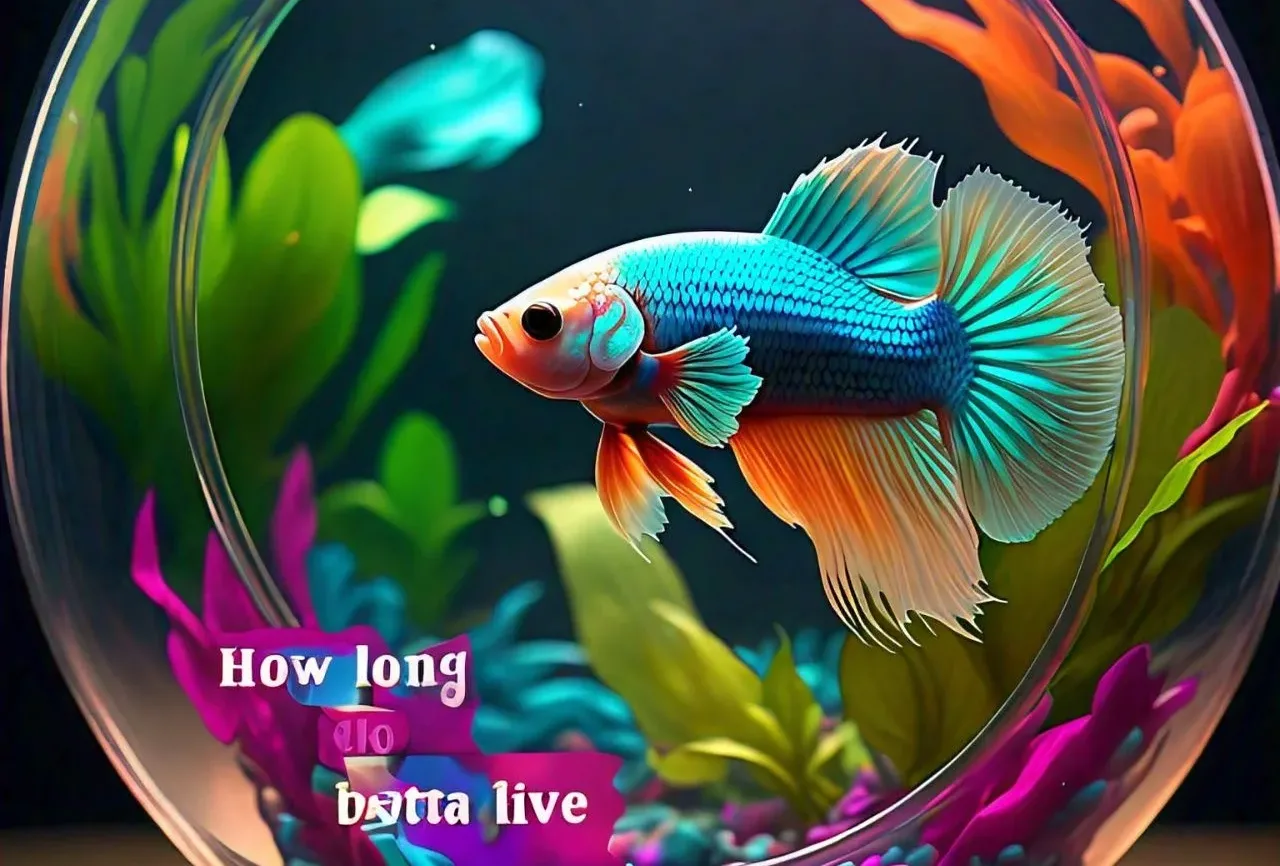The normal lifespan of a betta fish is 2 to 4 years and the maximum lifespan of a betta fish is usually 5 to 7 years with good care. Males and females have similar lifespans, but conditions like poor water quality or overfeeding can shorten their lives. Regular care is key if you want them to live longer.
Extend Betta Fish Precious Life
To help your bettas live a longer, healthier life, follow these simple tips:
Tank Clean:
Change the water regularly and clean the tank to remove waste and harmful bacteria.
Right Temperature:
Bettas thrive in warm water, ideally between 76-82°F (24-28°C).
Right Food:
Give your bettas high-quality betta pellets or flakes.
Signs of Illness:
Keep an eye out for unusual behavior or changes in appearance.
Following these tips can help ensure your bettas have a happy and long life.
How to Tell Your Betta Fish’s Age
To figure out how old your betta fish might be, look for these clues:
Size:
Young bettas are usually smaller, whereas older ones are larger.
Fins and Tail:
As bettas age, their fins and tails may become more worn or ragged.
Color:
A brightly colored betta may be older, while one with duller colors might be younger.
Activity:
Older bettas might be less active than younger ones. If your betta seems more sluggish, it could be older.
These signs can help you estimate your betta fish’s age, though it won’t be exact.
How to Keep Your Betta Fish Healthy
A tank that’s clean and has the right size is important. Bettas need a tank that’s at least 5 gallons.
Check the water temperature regularly; bettas like it between 76-82°F (24-28°C).
A balanced diet is key for your betta’s health.
What is the oldest betta?
The oldest betta fish on record lived up to 10 years. Most bettas usually live around 2 to 4 years, so a betta reaching 10 years is quite rare and impressive.
The 5 Life Stages of a Betta Fish
Egg:
In the very beginning, where the betta is still developing inside a tiny egg.
Fry:
Once the egg hatches, the baby fish called a fry, swims around but is very small and needs special care.
Juvenile:
As it grows, the fish becomes a juvenile. It looks more like an adult betta but is still maturing.
Young Adult:
At this stage, the fish is almost fully grown and starts to show adult colors and fin shapes, though it’s not completely mature yet.
FAQs
- What is The Longest Lifespan of a Betta Fish?
Bettas typically live for about 2 to 4 years. With proper care, some can live up to 5 years.
- How long can a betta survive in a dirty tank?
Bettas can survive in a dirty tank for a short time, but it’s not healthy. Poor water conditions can lead to diseases and stress, so it’s important to keep the tank clean and change the water regularly.
- Can I mix female Bettas with another type of fish?
Yes, female Bettas can sometimes be kept with other peaceful fish, but it depends on the species and tank conditions. Avoid aggressive or fin-nipping species.
Conclusion
To extend the precious life of your betta fish, proper care is essential. Maintain a clean tank, ensure the water temperature is stable between 76-82°F (24-28°C), and provide a balanced diet. Regular monitoring for signs of illness and creating a stress-free environment are key to helping bettas live longer, healthier lives. Genetics, diet, tank size, and care play significant roles in determining a betta’s lifespan, with some reaching up to 10 years with the right conditions.
